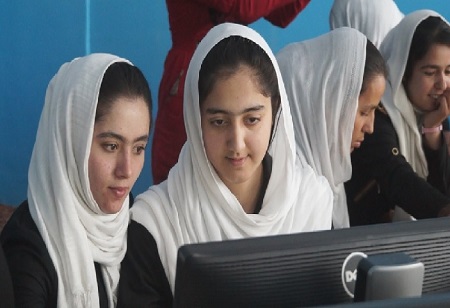With generous funding from the EU, a collaboration between UN Women and UNESCO has been established to execute a project titled "Empowering Women and Adolescent Girls in Afghanistan through Literacy and Skills Development for Sustainable Livelihoods". This initiative aims to grant illiterate and semi-literate Afghan women and adolescent girls access to education, skills enhancement, and counseling services. UN Women, in partnership with UNESCO's education program, will utilize this avenue to reach out to vulnerable women and girls, particularly in remote areas. The objective is to equip them with the necessary tools and knowledge to enhance their livelihoods, bolster their resilience and economic independence, improve their overall well-being, and enable them to lead lives free from violence.
This one-year initiative, with an approximate budget of nearly one million US dollars, will benefit 3,900 learners in the northern and southeastern regions of Afghanistan. Additionally, it will create employment opportunities for approximately 200 women serving as facilitators and support staff. The project focuses on providing basic literacy education, livelihood skills development, and psychosocial counseling to participants, empowering them with the knowledge and skills necessary for socio-economic empowerment and resilience. Furthermore, it aims to raise awareness in the targeted communities regarding the significance of women's access to fundamental education and the positive impact educated and skilled women and girls have on society, as well as the overall quality of life for families.
Moreover, the project aims to enhance healthier relationships within families and communities by implementing a customized curriculum and educational materials. Another crucial aspect of the initiative involves delivering Mental Health and Psychosocial Support (MHPSS) and counseling to 1,950 chosen learners, fostering more productive livelihoods and encouraging active participation in transforming their families and communities. This timely and pertinent initiative is anticipated to make significant contributions toward attaining the Sustainable Development Goals (SDGs), specifically SDG 4 (Quality Education), SDG 5 (Gender Equality), and SDG 8 (Decent Work and Economic Growth).

